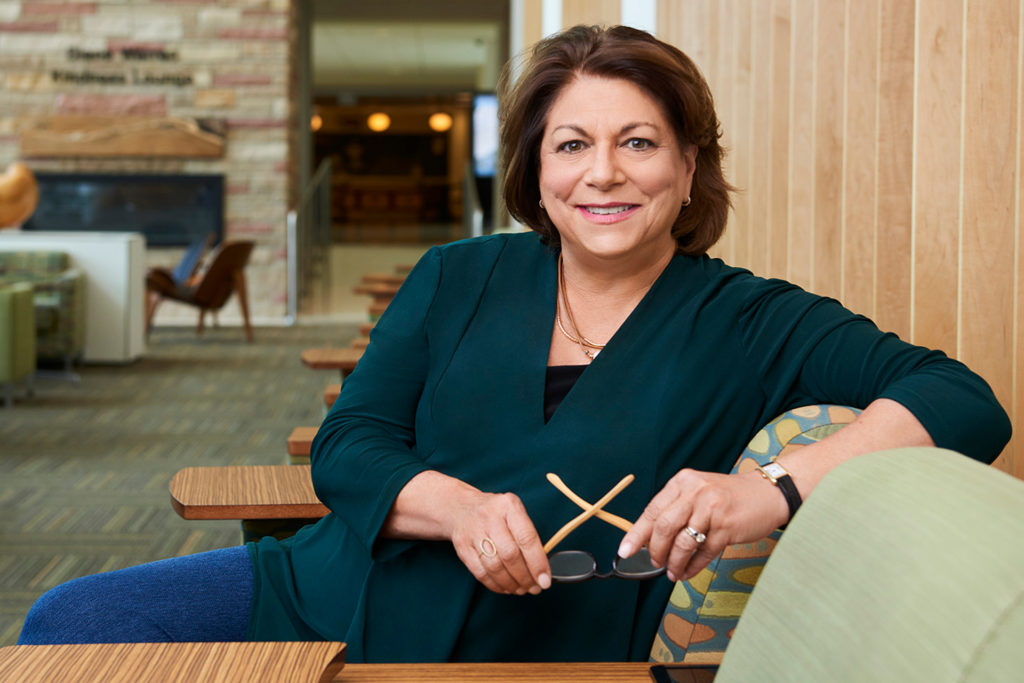
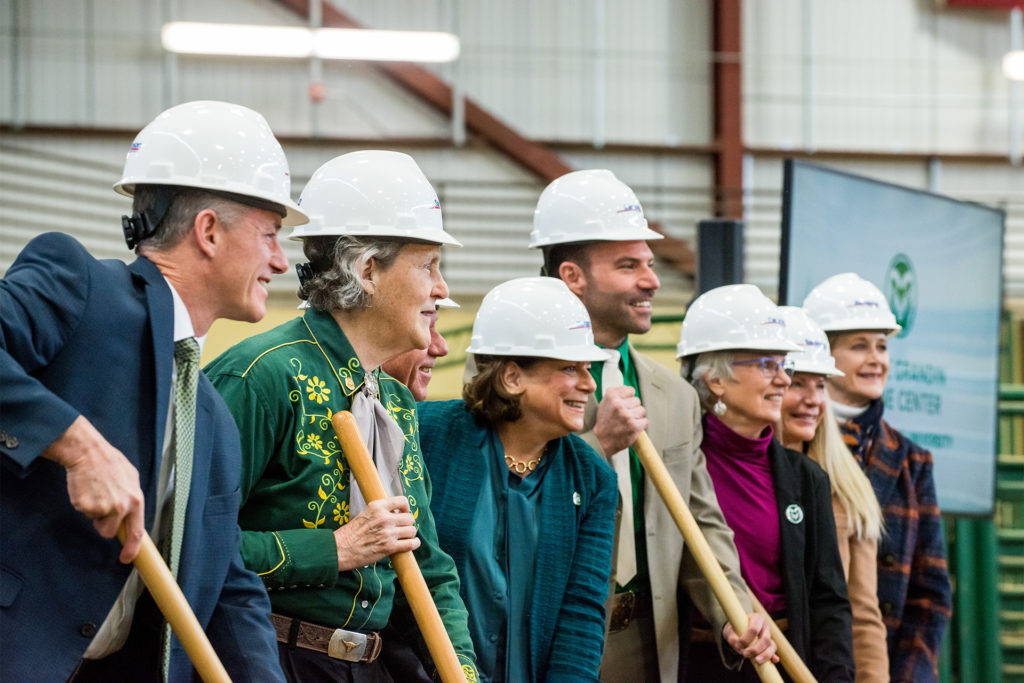
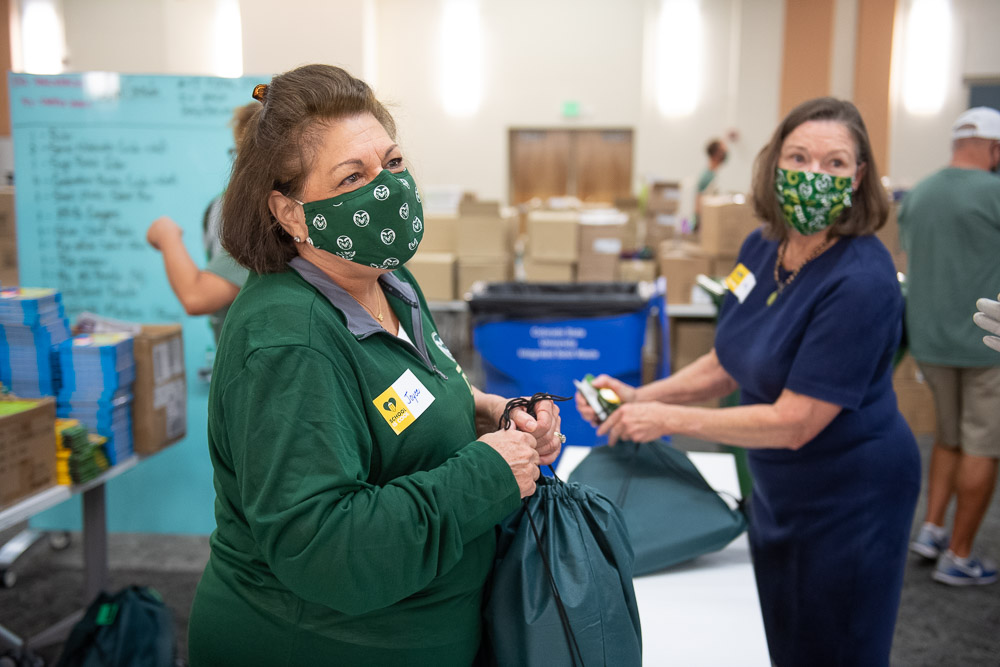
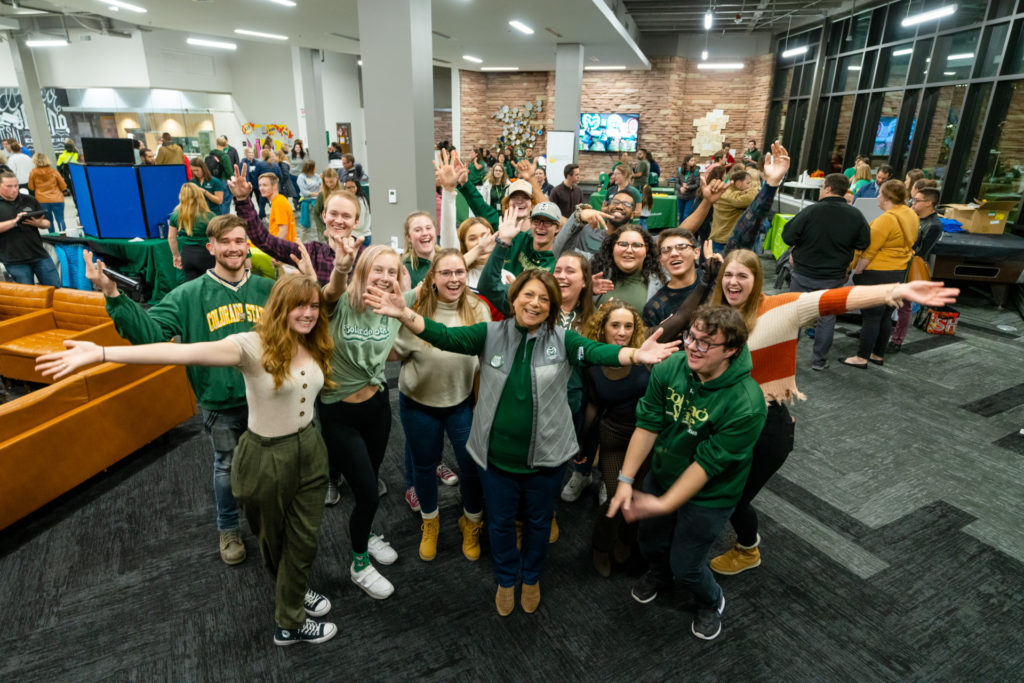
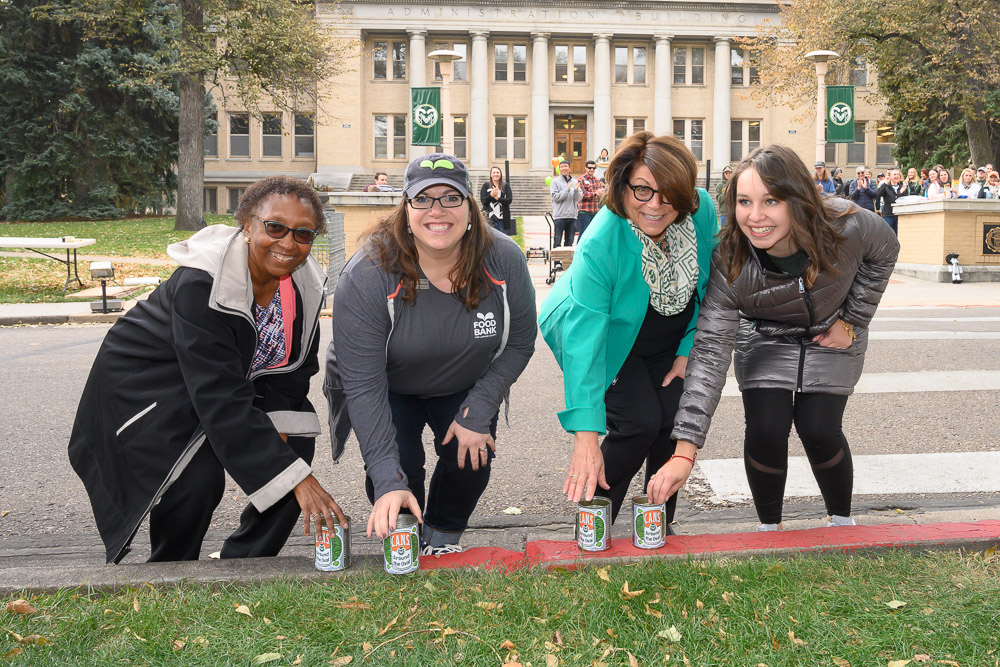
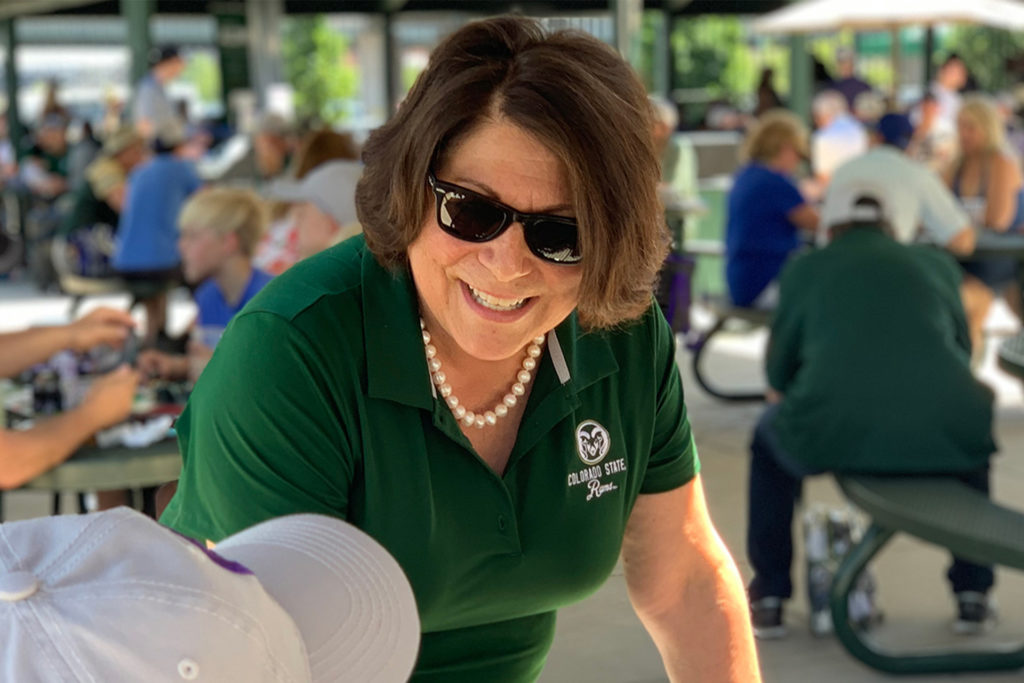
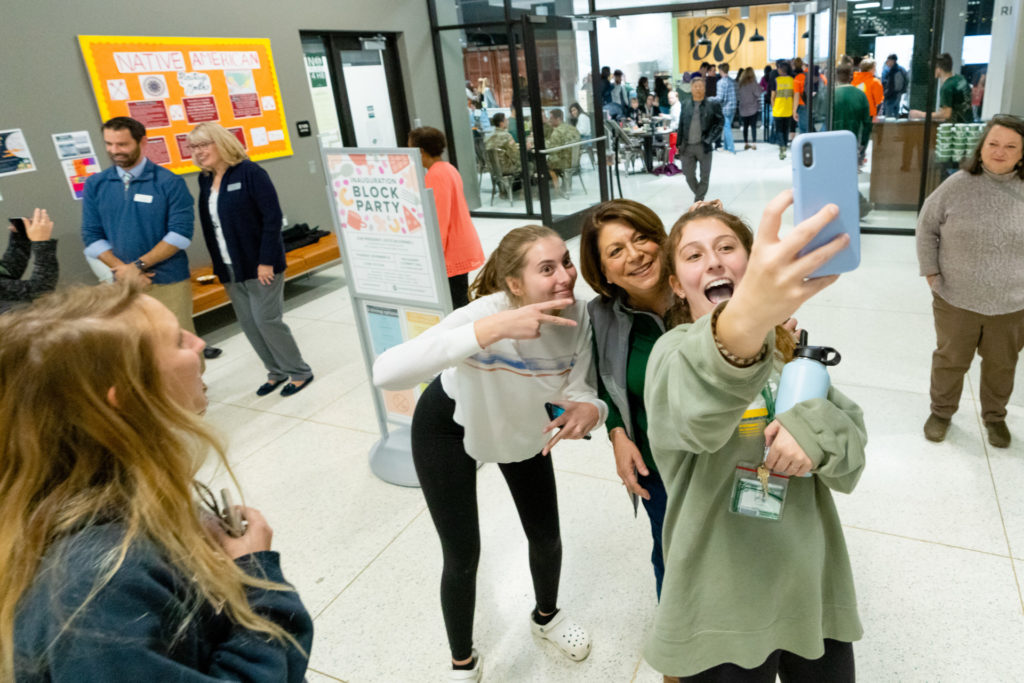
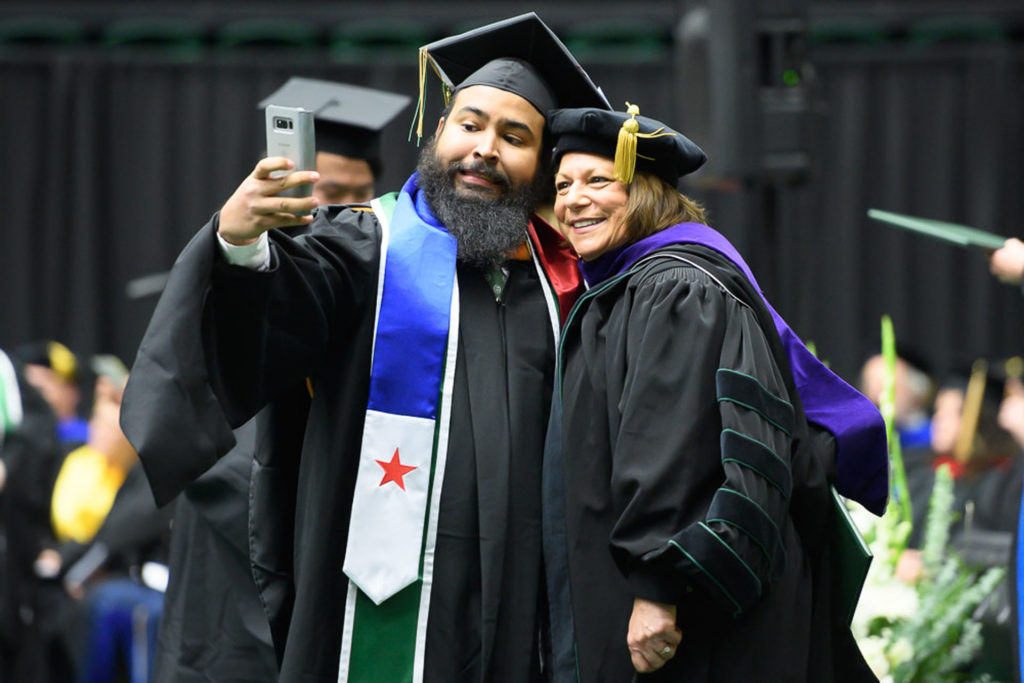
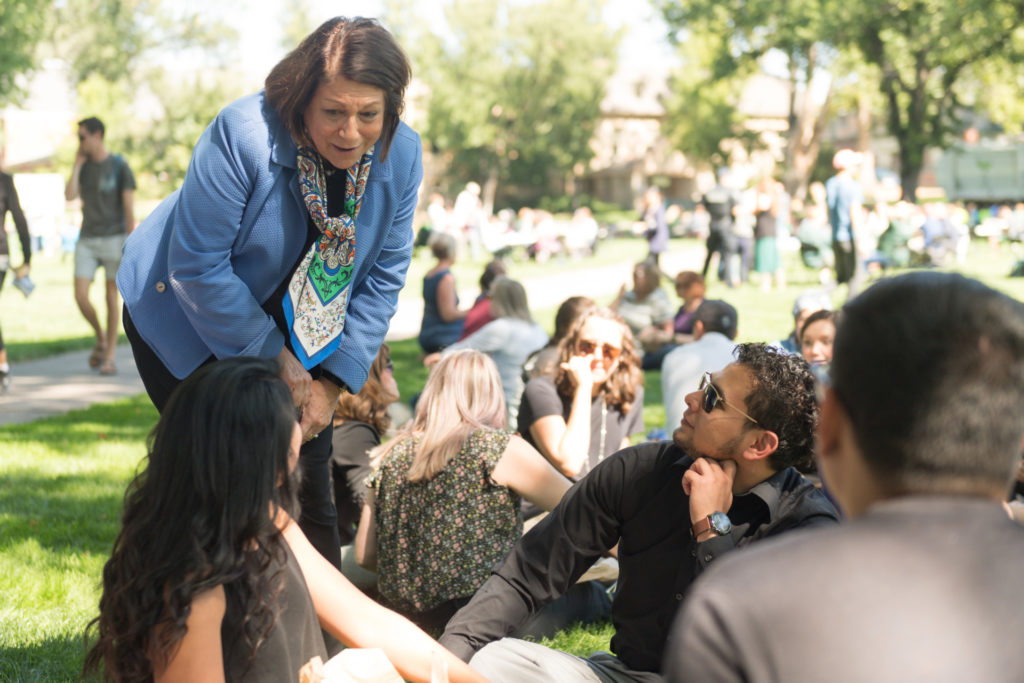
President Joyce McConnell concludes her tenure as the president of Colorado State University this week – a tenure that saw the university through the unprecedented challenges of the global coronavirus pandemic. Here, SOURCE looks back on some of the highlights of McConnell’s time at CSU:
In July 2019, McConnell became the 15th president and the first woman to lead the top-tier research University in Fort Collins. She joined CSU from West Virginia University, where she served as a law professor, dean of the College of Law, and as provost and vice president for academic affairs.
Celebrating 150 years of CSU
McConnell arrived at Colorado State at the start of its 150th anniversary year. Her first year brought much to celebrate: The campus community embraced the University’s enduring land-grant mission of providing access to excellent education for qualified students from all backgrounds, pursuing scientific discoveries with local and global significance, and offering public service and outreach to boost the vitality of Colorado and its residents.
By 2019-20, the sesquicentennial, CSU had more than 35,000 students, a quarter of whom were the first in their families to pursue college degrees. It had more than 9,500 employees, an annual budget of $1.2 billion, statewide CSU Extension offices serving every county in Colorado, and longstanding partnerships in Fort Collins and Northern Colorado.
Record research
The University boasted a faculty research trajectory before and during McConnell’s tenure that, by Summer 2021, would grow to a record $447.2 million in annual activity, measured in research expenditures. The ranks of University Distinguished Professors – the elite scholars known worldwide for their discoveries, artistry, and innovations – grew by 11 between 2019 and 2022, bringing to 53 the total number of faculty recognized since the top academic honor was established. Likewise, University Distinguished Teaching Scholars – who set the bar for instructional excellence – grew to a total of 27.
National recognition
CSU has risen 12 places in the US News & World Report rankings since 2019, most recently ranked No. 67 on the list of 100 best public universities in the country. In addition, members of the campus community have earned significant honors, including the election in 2021 of Drs. Jan Leach and Robin Reid to the National Academy of Sciences. That brought to 13 the number of CSU professors elected to the prestigious academy. CSU also received its first ADVANCE grant from the National Science Foundation, a nearly $1 million grant to support faculty success and promote equity for STEM faculty in academic workplaces and the academic professions.
Campaign reached successful conclusion
McConnell capped the 150th academic year by extolling the resounding success of the University’s State Your Purpose philanthropic campaign. Begun in 2012, the effort generated $1.28 billion in donations over eight years, far surpassing the original goal. More than 136,000 donors, including tens of thousands of dedicated alumni, contributed during the course of the campaign to support the University, its mission, and its talented and motivated students.
Now, and in the years ahead, this generous philanthropy will benefit every category of University activity – student support, campus programs, research, faculty support, and facilities. It will allow CSU to continue a building boom that began in 2007 and has transformed campus facilities and the teaching and research that occur inside them.
COVID-19
Spring 2020 saw the COVID-19 pandemic sweep through the United States, bringing with it a staggering array of challenges. In March that year, Colorado State University joined colleges and universities nationwide in moving all courses online, transitioning to remote work, suspending noncritical research, canceling events, and developing health policies and protocols for return to campus.
Among other moves to guide the University through crisis, McConnell empaneled a Pandemic Preparedness Team to keep close tabs on quickly evolving information and health recommendations. She consulted often with local and state health officials, directed staff to launch a website providing critical information for students and employees, and frequently communicated with campus by email and other means. McConnell also conferred with the CSU System Board of Governors and Chancellor Tony Frank on pressing administrative matters, including the University budget.
CSU weathered what likely was the worst of the pandemic with overriding strategies of protecting the health of students and employees, while returning to in-person learning and campus experiences as soon as safely possible. Tactics included hybrid teaching, some online and some in person; vaccination and testing requirements, which incorporated innovative saliva and wastewater analysis developed by University faculty; masking and disinfecting protocols; and quarantines as needed.
With budgetary support from the Board of Governors, CSU avoided the employee layoffs that befell many campuses when college enrollment dipped nationwide. Colorado State’s total enrollment largely rebounded in Fall 2021 and is expected to match or exceed pre-pandemic levels in Fall 2022. McConnell was proud that the University was able to host in-person commencement ceremonies again in Spring 2022 – and that CSU’s graduation rate did not drop during the pandemic. That rate stands at 68.2%, which is 6% higher than the national average.
Strategic planning
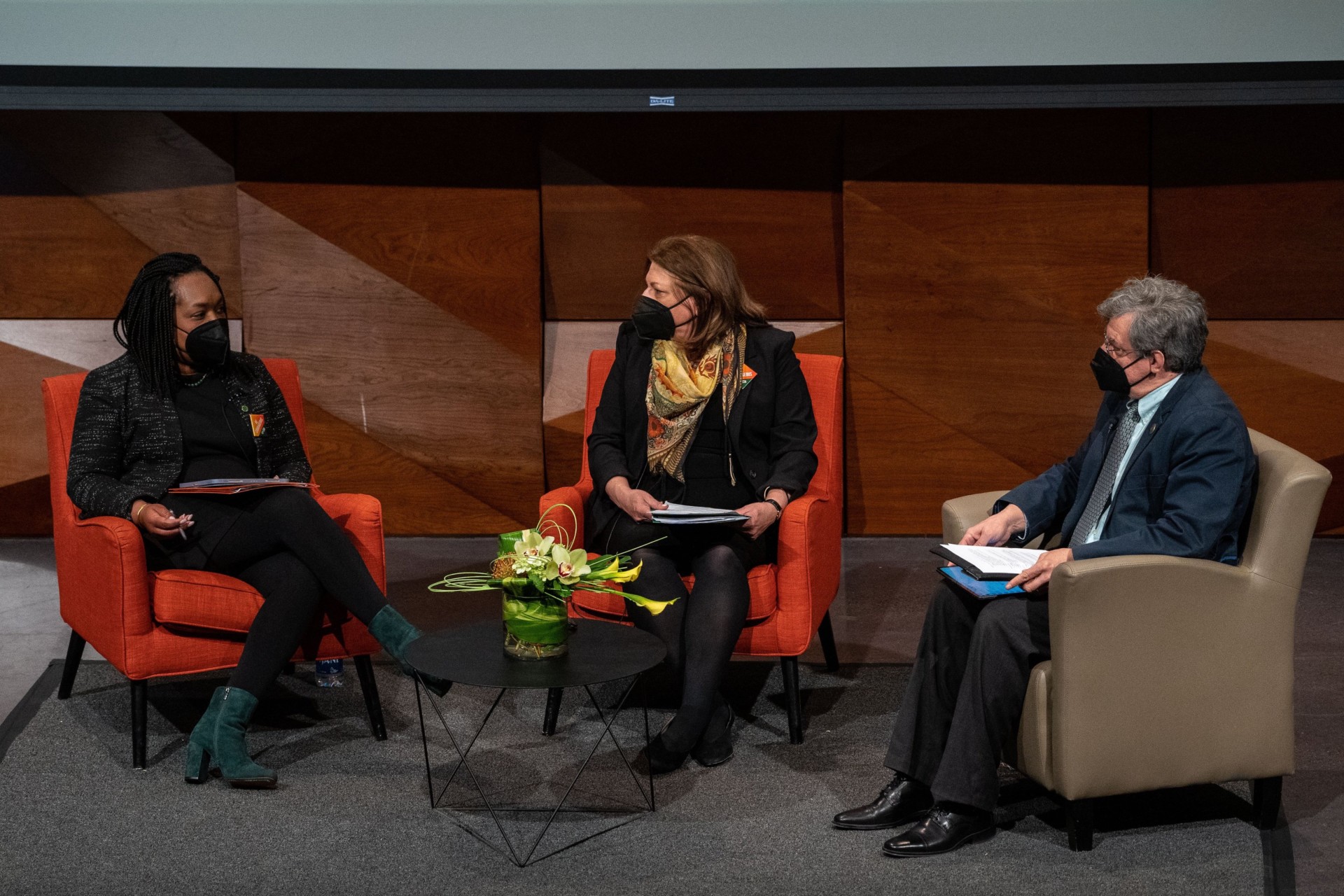
President McConnell with Vice President for Strategy Jenelle Beavers and College of Liberal Arts Dean Ben Withers at the Courageous Strategic Transformation kickoff event in March. Photo by Hannah Tran/CSU Social
Even as the pandemic upended campus norms, McConnell looked ahead by undertaking a strategic planning process she called “Courageous Strategic Transformation.” She urged campus stakeholders to join the process, to think boldly about the future of CSU, and to set forth an action plan to attain ambitious goals for the benefit of students, society, and the planet.
The plan was co-created with the goals of “nurturing our talent, enriching our community, and reinforcing CSU’s standing as a leader in learning, understanding, discovery, and change.” With the strategic imperatives collectively developed, the University challenged itself to build operational excellence, foster the well-being and success of people, embrace purposeful innovation, and amplify positive impact on all those it serves.
Courageous Strategic Transformation was notable, among other aspects, for the number of people involved, both on and off campus, and the array of perspectives incorporated. For instance, the plan’s drafting phase included some 350 working meetings involving about 3,500 participants.
The values and dedication demonstrated during the planning process – including an unwavering commitment to its land-grant mission – will continue to sustain the University.
Facilities improvements
McConnell and her executive leadership team worked closely with the academic colleges and CSU System legislative relations staff to advance improvements to several key campus buildings. Most notably, the long-awaited renovation of the Clark Building has received initial funding this spring from the State of Colorado; CSU opened the Nutrien Agricultural Sciences Building as a new, state-of-the-art home for its College of Agricultural Sciences; and plans are underway for expansion of CSU’s Veterinary Health Complex and replacement of the Glover Building.
Spur presence
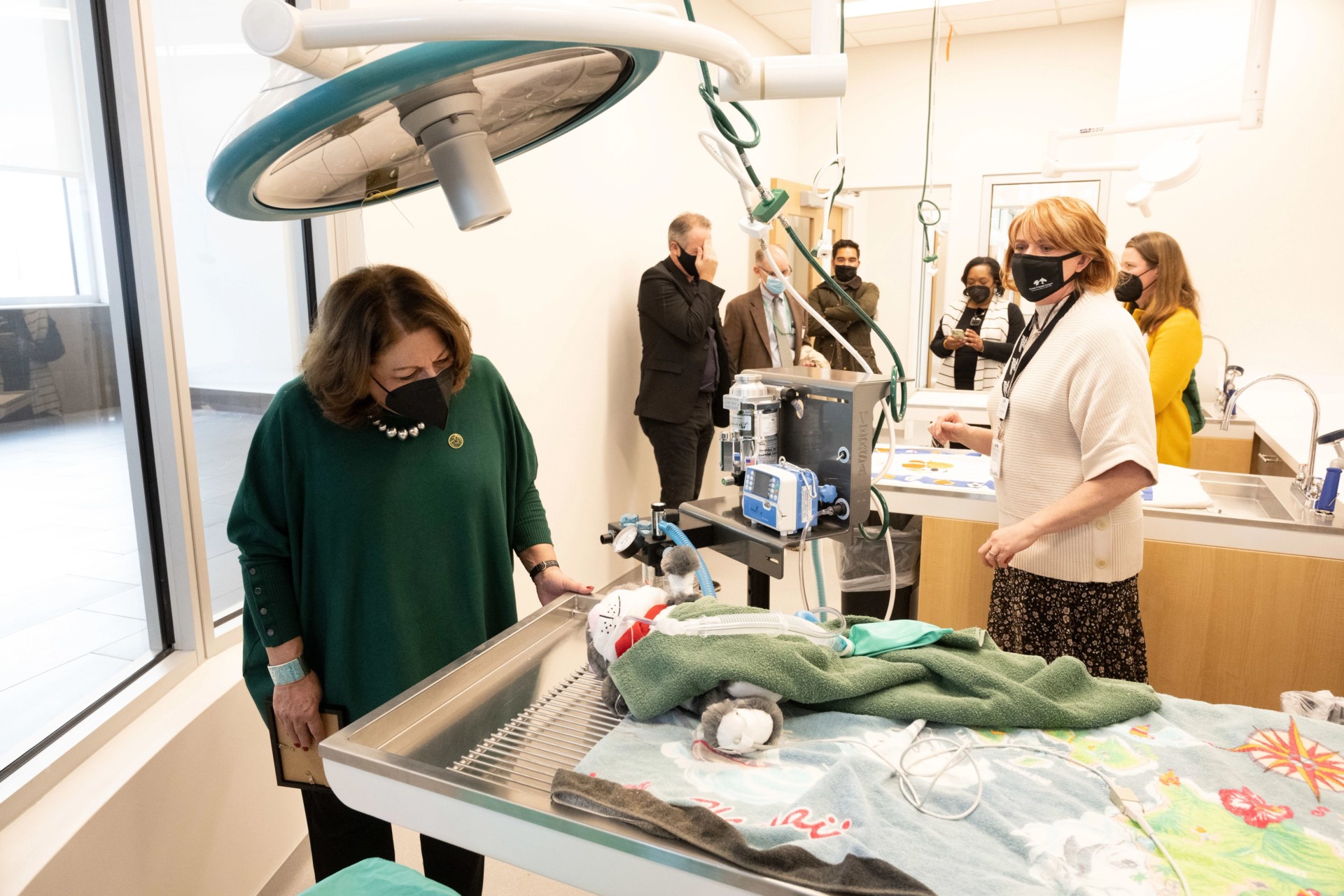
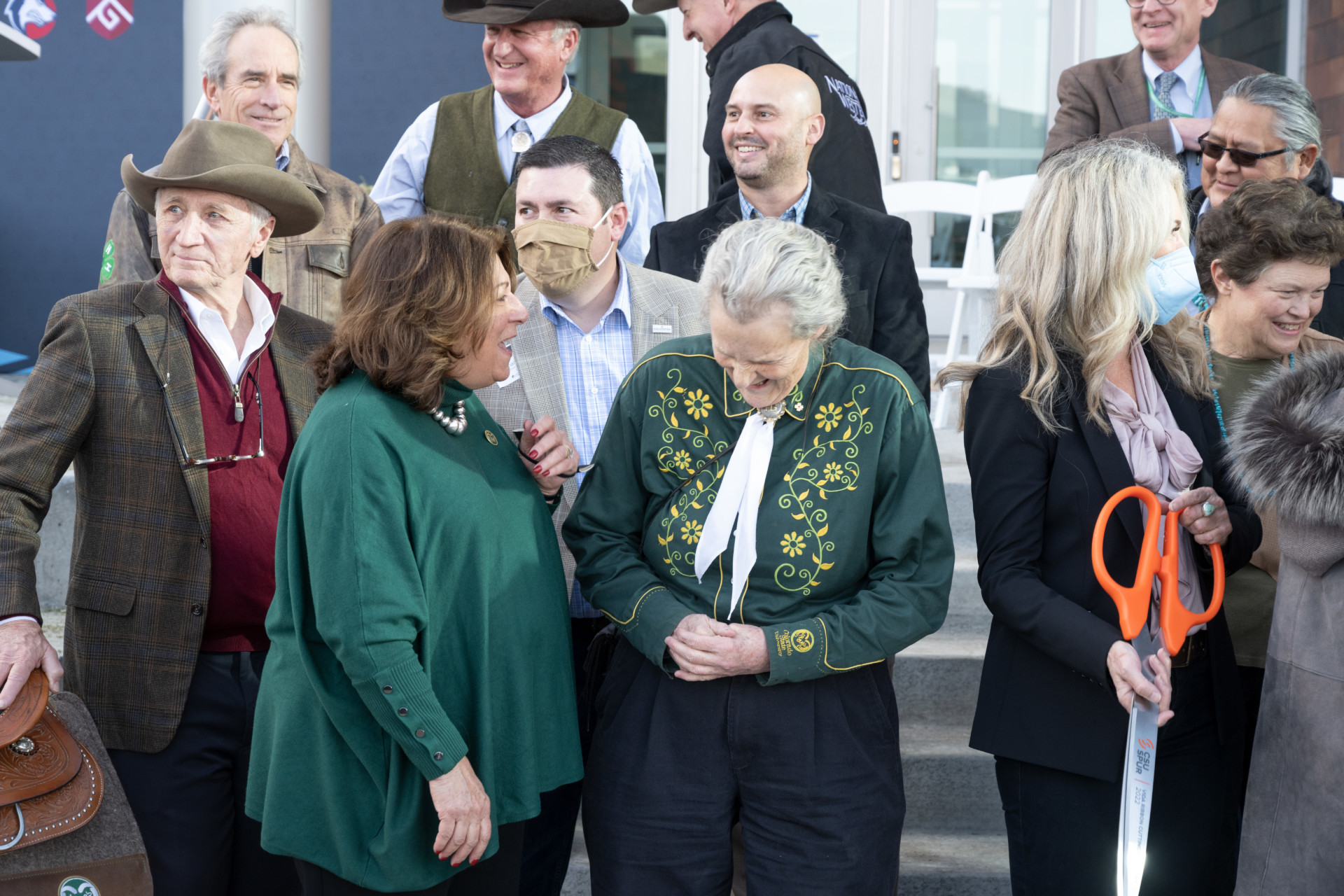
President McConnell celebrates the grand opening of Vida at CSU Spur in January. Photos by John Eisele/CSU Photography
During her three years as president, McConnell also supported visioning and planning for a strong University presence at the new CSU Spur campus at the National Western Center in north Denver. The CSU System is developing the new campus with a $250 million allocation from the Colorado General Assembly and with input from its three degree-granting campuses.
CSU Spur, in the works for nearly a decade, is built for public education, research, community outreach, and collaboration with business and industry. It’s a destination for everyone – from pre-K to gray. Year-round campus programs center on food, water, and animal and human health, with the aim of shaping the future, in part by exciting K-12 students about college and careers in these vital fields. They are topics the CSU System and its campuses excel at studying and teaching – and are matters central to the globe’s most urgent challenges.
To date, much of the CSU Spur planning and programming has involved CSU in Fort Collins and its faculty expertise. For instance, the College of Agricultural Sciences leads many of the offerings in the newly opened Terra building, which is dedicated to the science of food and agriculture. The College of Health and Human Sciences, together with CSU Extension, will lead nutrition programs in Terra’s expansive culinary kitchen. In a sign of CSU Spur’s priority for the Fort Collins campus, McConnell hired a strategy officer to help envision and initiate work at the Denver site.
McConnell and other leaders hope CSU Spur will enable Colorado State University and the CSU System to better serve a diverse community of stakeholders, becoming a model for contemporary land-grant universities and their contributions to educational access, innovation, and prosperity.
Athletic attendance

President McConnell with students at a CSU basketball game in March. Photo by John Eisele/CSU Photography
During McConnell’s tenure, average student attendance at athletic events increased significantly, with student attendance at the first Fall 2021 home football game setting a Canvas Stadium record at 11,337. Student attendance at men’s basketball games also set records, and volleyball single-match attendance was up 66%. This success in drawing students to games helped restore a sense of community and an active, vital campus after the isolation of the pandemic.
With her involvement in the leadership of these and other University priorities, McConnell said her time as president of CSU has been the highest accomplishment of her career in higher education.
McConnell’s appointment will draw to a close June 30. Her departure was announced June 9, during the regularly scheduled meeting of the Board of Governors of the CSU System. The Board appointed Rick Miranda, chief academic officer for the CSU System, as interim CSU president. The Board plans broad faculty, staff, and community participation in the presidential search and will continue to communicate about next steps.